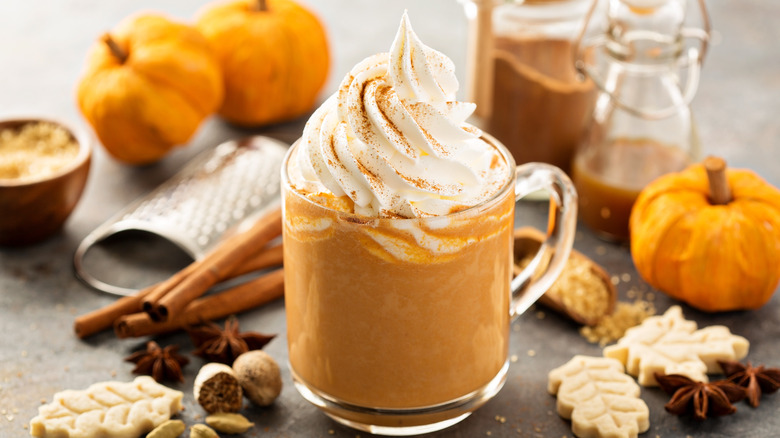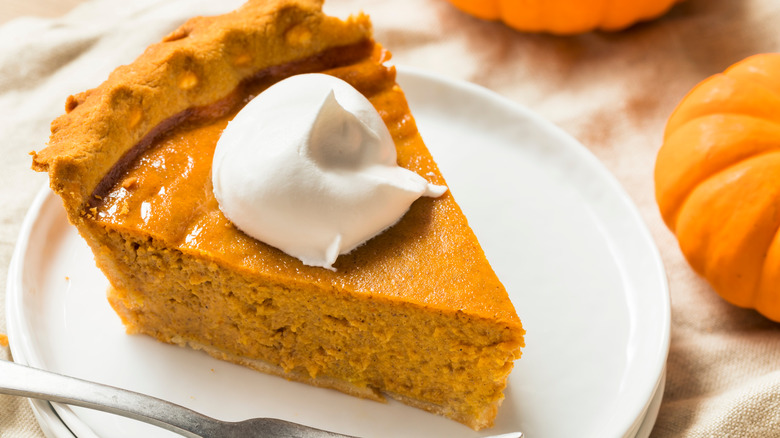The Scientific Reason You Can't Get Enough Of Pumpkin Spice
'Tis the season for pumpkin spice! Autumn is officially here, and in addition to the sounds of cool breezes and crunchy leaves, the distinctly spicy-sweet scent is filling the air. From coffee drinks and baked goods to turkey breast and hummus, this quintessential medley of fall flavors is a culinary trend that likely won't go away any time soon.
Pumpkin spice is traditionally a blend of cinnamon, nutmeg, cloves, ginger, allspice, and cardamom — sweeter-tasting, pungent spices that, even when they ride solo, add a spirited, aromatic kick to any dish. And when they're combined, the result is an iconic medley that adds an instantly festive touch to just about any food or beverage. So, what is it that makes pumpkin spice so special to so many people? Whether you're admittedly obsessed with pumpkin spice or claim to despise it because you think you'll be considered "basic" for enjoying it, there's actually a real and scientific reason behind why people crave PSLs. Let's explore why people adore this seasonal favorite.
Why do we love pumpkin spice so much?
As it turns out, our collective infatuation with pumpkin spice has to do with both flavor and fragrance. Our sense of smell is extremely powerful, particularly when it comes to inducing feelings of nostalgia, according to Catherine Franssen, an assistant professor of biopsychology and the director of neurostudies at Longwood University. "It's understandable that we've come to associate these smells with the fall holidays," she told Live Science, "and that smell association then taps into our sense of nostalgia." When you catch a whiff of pumpkin spice, your mind may jog to pleasant memories of family gatherings, high school football games, cafés, and bakeries.
The appeal of pumpkin spice is a hot topic within the world of academia. According to Sarah Cormiea, a Johns Hopkins University doctoral candidate studying human olfactory perception, the human brain fills in the "gaps" between specific scents and the real-life associations we have with them (via Mental Floss). In fact, Live Science notes that our sense of smell is the only one transmitted directly to the amygdala, the part of the brain that regulates and stimulates emotions. When we inhale certain scents, the amygdala immediately reminds us of an exact time, place, or feeling, whether it be good (delicious pumpkin pie) or bad (the fragrance worn by your least favorite ex).
So, there you have it! You have basic — pun intended — principles of neuroscience to thank for your love of all things pumpkin spice.

